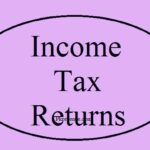ISLAMABAD: Tax cases involving over Rs250 billion have been decided at the various judicial forums during the quarter ended December 2020, Federal Board of Revenue (FBR) said in a statement.
The FBR said that it had geared up the efforts for resolving tax cases laying pending at various judicial forums.
As a result of these ongoing efforts, in the last quarter (ending December, 2020) 934 tax cases have been disposed of by the high courts and the supreme court with the revenue involved amounting to Rs81.7 billion.
Moreover, 1240 cases with the revenue involved of Rs168.5 billion have been decided by the Appellate Tribunal Inland Revenue (ATIR) during the same period.
The FBR said that it is making all out efforts by taking several steps to improve the disposal of tax litigation cases pending in different appellate fora including Commissioners Inland Revenue (Appeals), Appellate Tribunal Inland Revenue, High Courts and the Supreme Court of Pakistan.
The FBR has launched the simplified process at the first Appeal i.e. Commissioners Appeals level by implementing the e-filing of appeals since January 01, 2021.
Through e-filing, taxpayers can simply file appeals against an appealable order, online, without hassle of going to their respective field office. Even prior to launching of E-filing, disposal of cases have been surpassing the assigned targets as per the Performance Agreement.
For the period from July to December, 2020, the target of disposal assigned to the CsIR (Appeals) was 7818 appeals against which a total of 17,768 appeals were disposed of which is in excess of the target by a huge margin.
Similarly on FBR’s request, special benches for hearing of tax cases have been constituted by Sindh High Court, Lahore High Court and Islamabad High Court for early hearings and speedy disposal of tax related cases.
In addition to that a new policy has been introduced for the induction of competent lawyers so that government revenue is not left at the stake of amateur lawyers.
It is also informed for the benefit of taxpayers’ that the institution of ADRC (Alternate Dispute Resolution Committee) has also been mobilized by virtue of which taxpayers’ are encouraged to get their cases settled through these committees in a much lesser time and without incurring litigation cost.
So far on application by the taxpayers’ 18 committees have started working for resolution of cases.
FBR further clarifies that by virtue of a major facilitative change in law vide Finance Act-2020, an applicant taxpayer, in order to apply for resolution of case by ADRC, is not required to withdraw his case pending in any other appellate forum.
In order to win trust of the taxpayers’ in this system, the law requires that members of ADRC apart from the relevant Chief Commissioner would also include respectable reputable judges, chartered accountants and businessmen nominated by chambers of commerce.
The committee is also empowered to stay the process of recovery in hardship cases. FBR also clarifies that taxpayers’ application has to be finalized by the Committee within a short period of 120 days which in itself is a big relief considering the usual time taken in various appellate fora before a case attains finality.





